There's a difference between hard games and hardcore ones, and the distinction matters
True skill is about more than learning how to win, and true challenge is about more than an insurmountable obstacle.

Keep up to date with the most important stories and the best deals, as picked by the PC Gamer team.
You are now subscribed
Your newsletter sign-up was successful
Want to add more newsletters?

Every Friday
GamesRadar+
Your weekly update on everything you could ever want to know about the games you already love, games we know you're going to love in the near future, and tales from the communities that surround them.

Every Thursday
GTA 6 O'clock
Our special GTA 6 newsletter, with breaking news, insider info, and rumor analysis from the award-winning GTA 6 O'clock experts.

Every Friday
Knowledge
From the creators of Edge: A weekly videogame industry newsletter with analysis from expert writers, guidance from professionals, and insight into what's on the horizon.

Every Thursday
The Setup
Hardware nerds unite, sign up to our free tech newsletter for a weekly digest of the hottest new tech, the latest gadgets on the test bench, and much more.

Every Wednesday
Switch 2 Spotlight
Sign up to our new Switch 2 newsletter, where we bring you the latest talking points on Nintendo's new console each week, bring you up to date on the news, and recommend what games to play.

Every Saturday
The Watchlist
Subscribe for a weekly digest of the movie and TV news that matters, direct to your inbox. From first-look trailers, interviews, reviews and explainers, we've got you covered.

Once a month
SFX
Get sneak previews, exclusive competitions and details of special events each month!
The welcome release of Mortal Kombat: Legacy Kollection has brought a whole host of klassic fighting games to PC—and also brought many people face-to-face with the series' unvarnished arcade AI opponents for the first time in years.
They're tough, but they're the bad kind of tough. They openly cheat, regularly bending or breaking rules to give computer-controlled characters an unfair advantage, so much so that even the shortest session can rapidly erode any sense of goodwill anyone ever had for blood-splattered fighting games. Learning how to consistently beat these frauds using some repetitive cheese only encourages bad habits that are neither useful against another player or in fighting games in general.

I'm relieved we're not in those credit-munching days anymore, and that other games are around to show what good-hard CPU opponents can look like. Renowned fighting game Virtua Fighter 5, which was remastered for PC this year, just got a new mode featuring over a thousand custom-tuned CPU opponents for me to challenge. Even though I'm playing alone, I'm expected to observe and react to what's playing out on the screen as it happens, as if I'm trying to outfox a real person.
Every match feels like an intense martial arts session. I duck and weave and jab as best I can, and when that's not enough I go back to training, combing extensive move lists for some new technique that might help, or have a CPU dummy perform whatever attack I'm struggling with until I work out an adequate response based on my chosen character's capabilities and my own showboating preferences. Win or lose, I'm a better player for trying my best.
Virtua Fighter demands my time, skill, and attention, but it's also more than just hard: it's hardcore. A place where personal skill and a game's complexity work together to create something special that's more than the sum of its parts.
Harmoniously hard
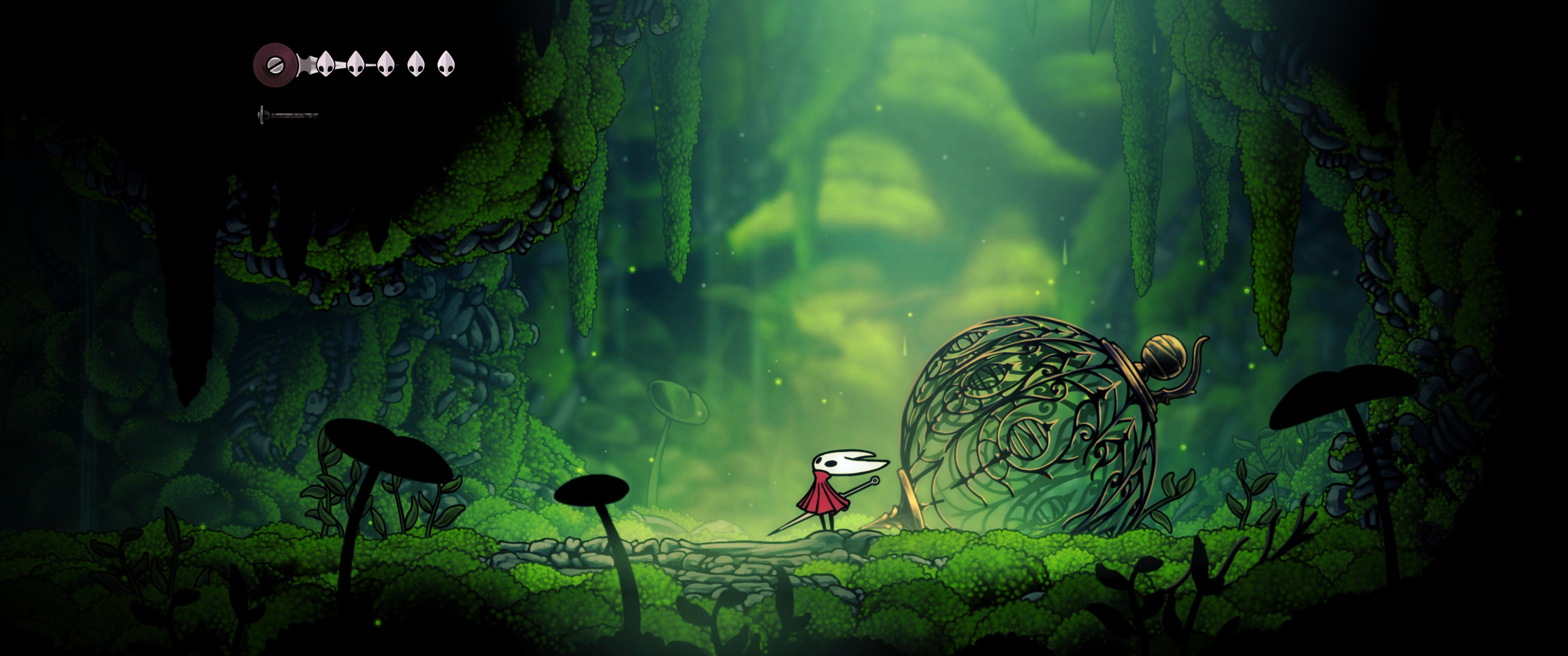
The distinction between a generally hard game and a hardcore one is a crucial nuance that debates about game difficulty often brush up against, but all too rarely fully grasp.
🪡🦗Silksong expects me to do so much more than use something pointy to kill things quickly. Observing enemies and knowing when and how to strike at them is even more important than how much raw damage I do. Poise and precision, refined through a mixture of time, hardship, and stubborn refusal to quit, turns what were once fatal encounters into beautiful ballets.
Keep up to date with the most important stories and the best deals, as picked by the PC Gamer team.

🧙♀️✨Success in Final Fantasy 14's many raids isn't simply about having the right gear and knowing which multi-phase boss fight comes next. I need to be in sync with the party and, especially as a healer, know how to adapt if someone makes an unscripted stumble. If someone does fall I'm bringing them back up before they've even hit the ground and carrying on without missing a beat.
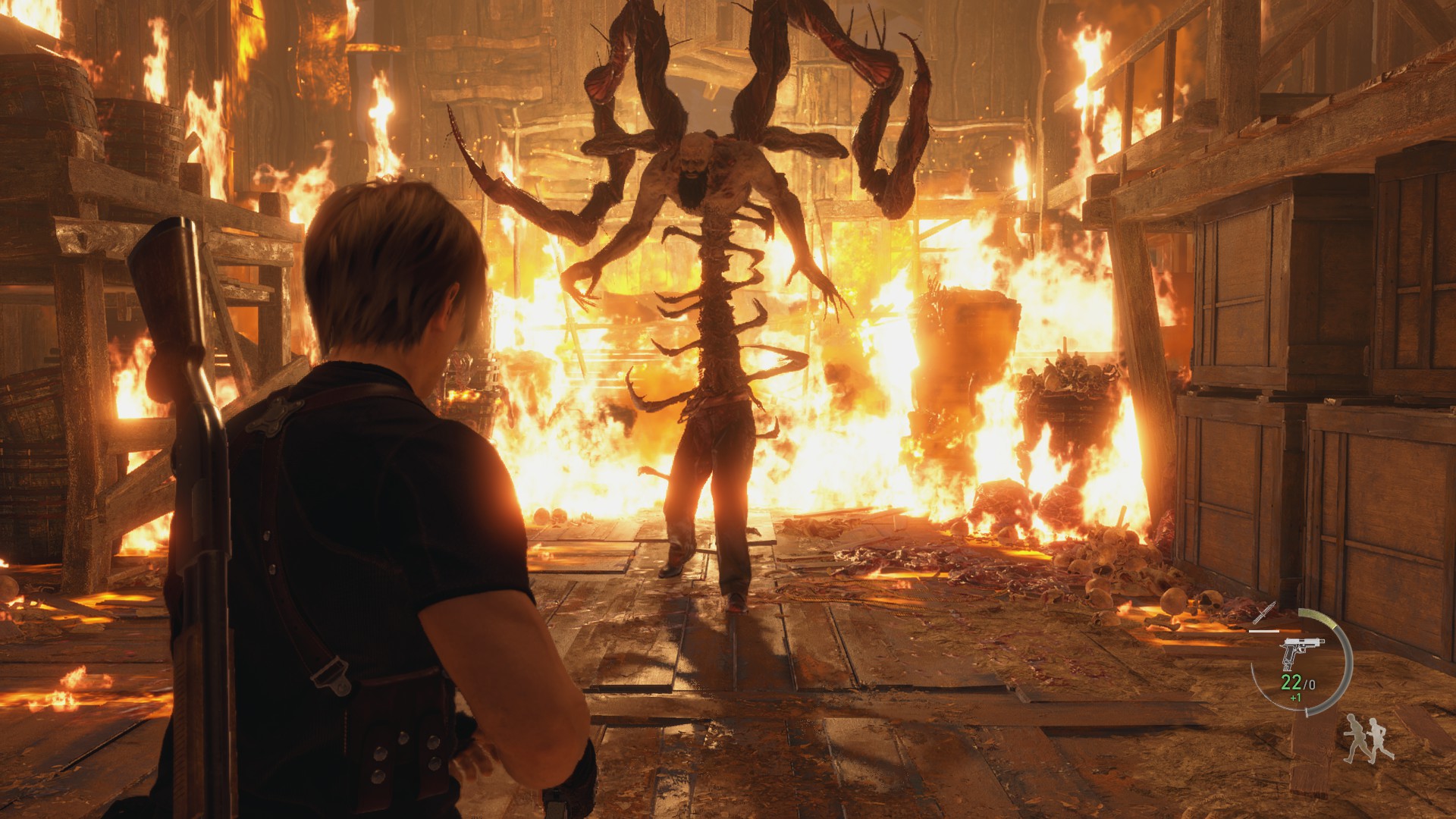
🏃💨Repeat Resident Evil runs turn bewildering gauntlets of mansion keys and the undead into a zombie-filled playground. Saving is a terrible waste of time. A shambling horde of Ganado is just another excuse to spend a while staggering and suplexing my way across Spain. Whether I sprint past everything or style on monsters like Devil May Cry's Dante, these dilapidated locations are mine to conquer.
More than difficult
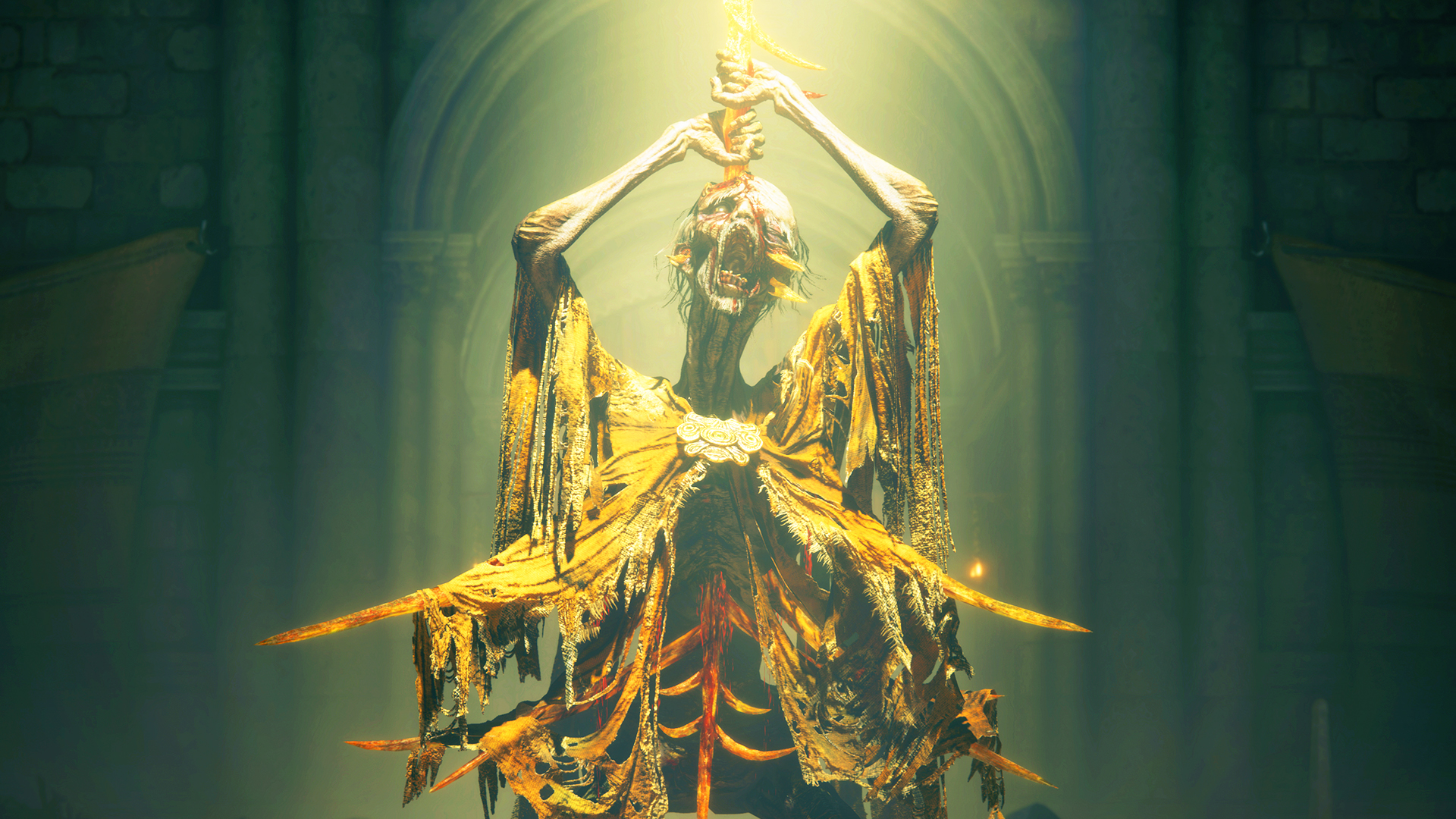
But to leave it there is to fall into the ego-inflating gamer trap of only equating hardcore skill with the expertise to overcome obvious challenges and predefined roadblocks, and that's not quite right. Hardcore does not restrict itself with such narrow concerns.
Any game that allows a player's skill and creativity to shine through, in any way, is hardcore.
Sometimes that means racking up a ridiculously high score in a shmup that regularly fills the screen with bullets, even though it also allows me to credit feed my way to the end. "Hardcore" can also show in a heavily customised Sims family that, after goodness knows how much work and additional mods, look just the way I want them to. Or a meticulously planned Stardew Valley farm that's been dug and planted and decorated until it's an immaculately sculpted fairyland, or the most cosy, comfortable, and abundant vegetable patch in town.
A game is only truly hardcore when it ensures a players' passion and creativity are up on the screen for everyone to see, in whatever form that passion and dedication happens to take. Difficulty, at least in traditional terms, is entirely optional.
Hardcore games invite us to not only challenge ourselves in tests of skill, but also to question what "challenge" and "skill" can look like
🧙Elden Ring isn't hardcore because it's so keen on killing me off—it's hardcore because the path I take and how I fight is largely left up to me. Classic spellcaster? Scarred warrior? Minmaxed death machine? Semi-naked weirdo named PullMyFinger with a fondness for offensive perfume bottles? With a pot on my head? The best build is whichever one I want to use.
🐇Baldur's Gate 3's hardcore-ness manifests in its boundless creativity. Sure, I can crunch numbers until I find it embarrassing if any honour mode battle takes more than three turns, but I can also stack 30 crates on top of each other and leap off the top while transformed into an owlbear, or mod the game so Prince Specialguy, an imagined magical faerie royal wearing custom armour, can wander around a Sword Coast populated by giant bunnies. Every second of the experience reflects my choices.

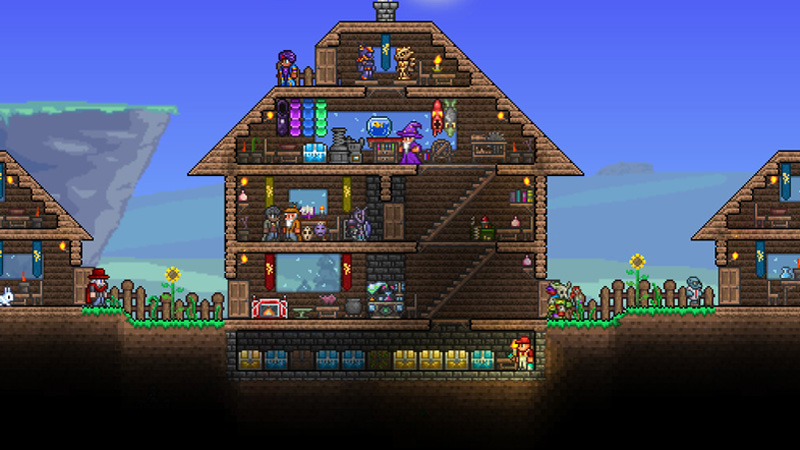
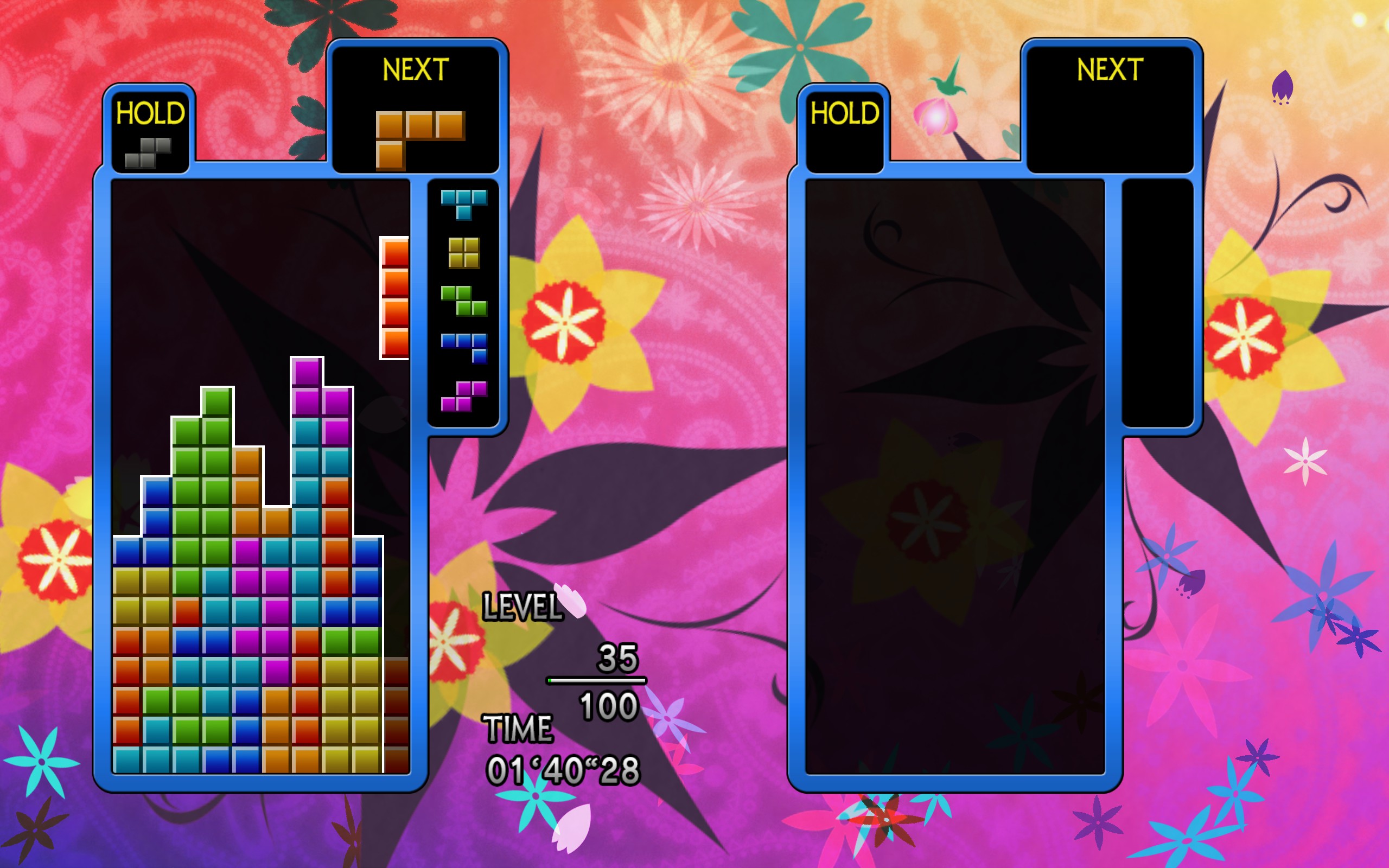
🏘️Is Terraria a game where I spend hundreds of hours in a randomly generated land so I can conquer its lava-filled depths, or am I here to create whatever I please? Elaborate villages and cloud-borne castles decorated with every luxury are just as valid—and require just as much hardcore dedication to see through to the end—as any battle against a giant boss with too many eyeballs.
🟪Of course Tetris The Grand Master 4 is hardcore, but not because it's competitive arcade Tetris at home. Some days it's "just" the puzzle game everyone already knows and loves, a quick marathon mode session just for fun. But some days it's a specialised test of my skills under unique rulesets where pieces can vanish before my eyes, or freeze in place. The variations in here allow me to decide how I wish to engage with the game and express my skills in any particular moment.
Happy hardcore

Games that are "just" hard rarely evoke any of this agency. The original Broken Sword's goat puzzle is so infamously hard it's got its own Wikipedia page. Many classic RPGs rely on gaining enough XP or the gold to buy stronger weapons to brute force their biggest challenges—skill and strategy alone is never enough. "SNK boss" is a recognised fighting game term, thanks to the once-respected developer's fondness for final battles against CPU opponents that dramatically break their game's rules in their favour (much like in Mortal Kombat).
These aren't strictly bad games for being hard or frustrating—not even when they're almost brokenly so. But the limited, impersonal response I have to these difficulties is what stops them from being hardcore.
Hardcore games invite us to not only challenge ourselves in tests of skill, but also to question what "challenge" and "skill" can look like in a medium that covers everything from grisly action to fantasy dress-up. Sometimes it does involve learning how to effectively use an entire army's worth of weapons to pop monster heads like overripe melons. But to focus exclusively on traditional "gamer" achievements not only does such a varied hobby a disservice, but means missing out on a lot of fun and the chance to develop new skills, too.
Being willing and able to use a game to show off my own abilities and interests in my own way—that's hardcore.
Best laptop games: Low-spec life
Best Steam Deck games: Handheld must-haves
Best browser games: No install needed
Best indie games: Independent excellence
Best co-op games: Better together

Kerry insists they have a "time agnostic" approach to gaming, which is their excuse for having a very modern laptop filled with very old games and a lot of articles about games on floppy discs here on PC Gamer. When they're not insisting the '90s was 10 years ago, they're probably playing some sort of modern dungeon crawler, Baldur's Gate 3 (again), or writing about something weird and wonderful on their awkwardly named site, Kimimi the Game-Eating She-Monster.
You must confirm your public display name before commenting
Please logout and then login again, you will then be prompted to enter your display name.


